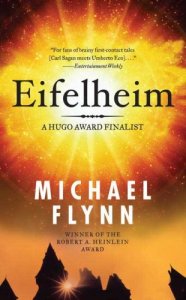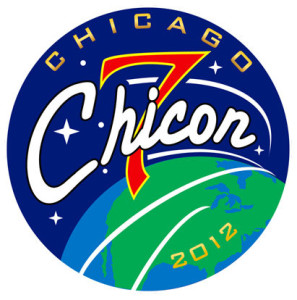 I recently finished reading Eifelheim by Michael Flynn. It’s a science fiction novel written as historical fiction, following two parallel stories:
I recently finished reading Eifelheim by Michael Flynn. It’s a science fiction novel written as historical fiction, following two parallel stories:
- In the present day, a historian is trying to figure out why a village wiped out in the Black Death was never resettled, while a physicist tries to work out a new cosmological theory.
- In 1348, the pastor of Oberhochwald unexpectedly makes first contact with shipwrecked aliens, who spend the next year stranded on Earth near the village.
The present-day story is interesting, but hard to follow just because the viewpoint characters are very…self-absorbed.
Fortunately, most of the book focuses on the middle ages and the story of how a tiny German village encounters and eventually learns to live with the stranded aliens. It paints a detailed picture of life in the 1300s and how their strange visitors disrupt it, and it’s fascinating to look at how someone highly-educated in science and philosophy, but with a medieval European mindset, might see concepts like space travel, electricity, or even evolution. How do you explain coming from another planet in another star system to someone who believes that the Sun moves around the Earth, the stars are all the same distance away, and the “world” encompasses all of the above?
Archived at my reviews collection.
The Black Death
As the book caught up to the arrival of the plague in the village, I found myself curious about the timeline of the pandemic. In looking it up, I found an article proposing that, based on descriptions of the symptoms and spread of the disease, it might have been a viral hemorrhagic fever like Ebola or Marburg (with a longer incubation period), and not the bubonic plague. It probably falls under the category of “extraordinary claims,” but it’s certainly an interesting idea!



I agree with you on the current-time part of the story. The entire book could have been written without this wrapper, made more detailed in the medieval parts and been a stronger story overall, with more focus and more credibility. I think they author just started out with this great parallel story idea, which was his catalyst, but he didn’t pull that part off.
The book was expanded from an earlier novella by the same author. I’m not 100% certain, but I got the impression that the novella focused entirely on the present-day search.